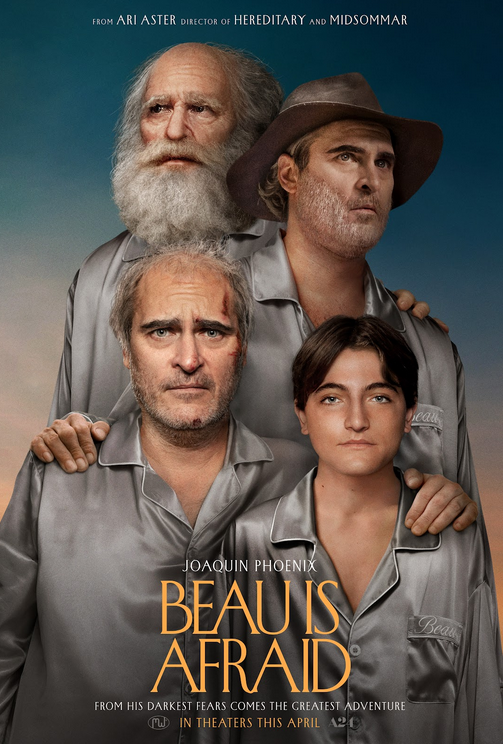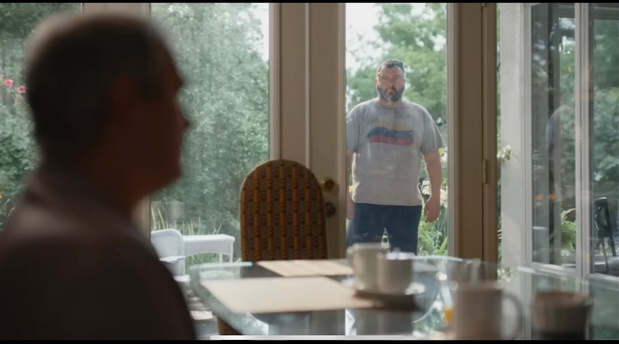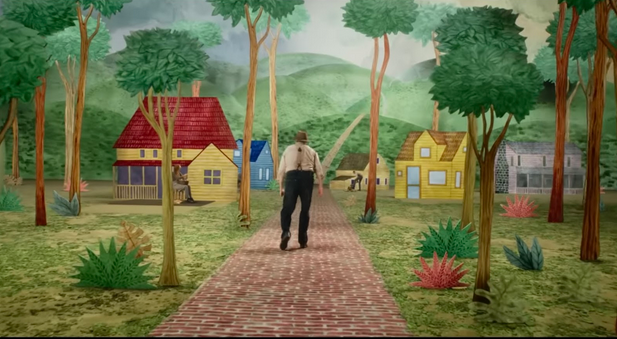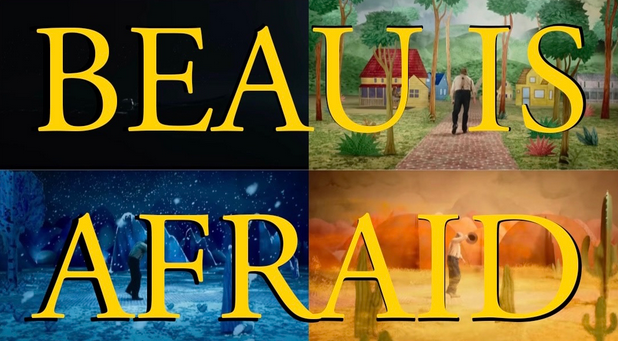Ari Aster is an American film director, screenwriter and producer who is best known for writing and directing the A24 horror films Hereditary (2018) and Midsommar (2019). Recently, his third blockbuster film Beau is Afraid was released. It follows our protagonist, an anxiety ridden Beau, as he embarks on an odyssey to see his dead mother and pay his respects, although it seems as though anything and everything will get in his way. Upon the first viewing of the film, you’ll probably be left with the rest of the audience wondering what just happened as you watch the crowd slowly file out of the theater. A three-hour surrealistic dark comedy, Beau is Afraid may not be for everyone, but you just can’t look away.
Beau is born at the beginning of the film, and the remaining plot of the film centers around Beau’s relationship with anxiety and his mother. The two relationships seem to go hand in hand, as Beau is in therapy specifically to help him with anxiety regarding his mother.

While viewing the film, the most important component to understanding what is happening throughout the bulk of the story is to realize that our protagonist is the definition of an unreliable narrator. Having a complete lack of self-confidence paired with a slew of anxiety disorders, which he is consistently re-medicated for, it is important to understand the way that Beau actually thinks and perceives the world around him.
With this skewed version of reality that the audience is presented with as the film’s foundation, Aster is a master at making the surreal seem real. From dream sequence to dream sequence, each scene is carefully crafted to include many intense levels of metaphors and imagery. He uses psychedelic motifs to emphasize the feelings that Beau fluctuates in and out of throughout the film, and to enhance the setting of each and every shot and scene. Some of the “horror” in this film comes off, to some viewers, as more laughable than disturbing.

Unlike true horror hits Hereditary and Midsommar, Beau is Afraid is Aster’s first dip into making somewhat of a dark comedic film. The scope of this movie overall is extremely dark, but some of the incidents that happen to Beau are straight out of a cartoon. The film likes to laugh at anxiety, placing the over-the-top and obsessive thoughts you have when you are anxious into reality, which results in hilarious scenarios. That being said, these cartoonish moments are often interrupted a split second later by something truly horrifying or unexpected.
Beau is Afraid has all the characteristics of a psychological thriller and a dark comedy wrapped into one, and unlike Aster’s other previously mentioned hits, there weren’t as many truly horrifying visual moments. This is not a typical “horror” movie at all, as the existential themes of the film are far more anxiety-inducing than anything on the screen. Sure, there are some moments with blood, but most of the tension on screen stems from Beau’s fears and existential crises.This resulted in some drastically varying reactions.

Some audience members simply couldn’t, or didn’t want to, try to wrap their heads around such an unconventional narrative. Some imagery of Beau’s anxieties came across as silly and many people, including myself, laughed at many points in the film mainly out of pure shock at the absurdity. The revelation of the most thematically and psychologically horrific scenes that the film had been building throughout involves Beau’s fears of sex and sexuality. Aster presents this to viewers in the form of a giant monster modeled after male genitalia. It is easy to see how this scene would fall flat to many viewers, and was definitely a break from the intensity of the film.
For some, this film didn’t quite hit the mark, but for many, the themes of anxiety and existentialism were spot on and just what they were looking for from the film. It is a whirlwind of emotion and shows periods of Beau’s life that gives context to his character and forces audiences to consistently question what will happen next from one second to the next. The situation can go from comedic to scary somewhat instantaneously, which makes you question if most situations Beau is in are supposed to scare or humor the audience and constantly keeps them on their toes. Although this film did not make much in the box office compared to many other Blockbuster films, making $8.3 million with a budget of $35 million, this is a must-see for those willing to pick apart every aspect for meaning.

